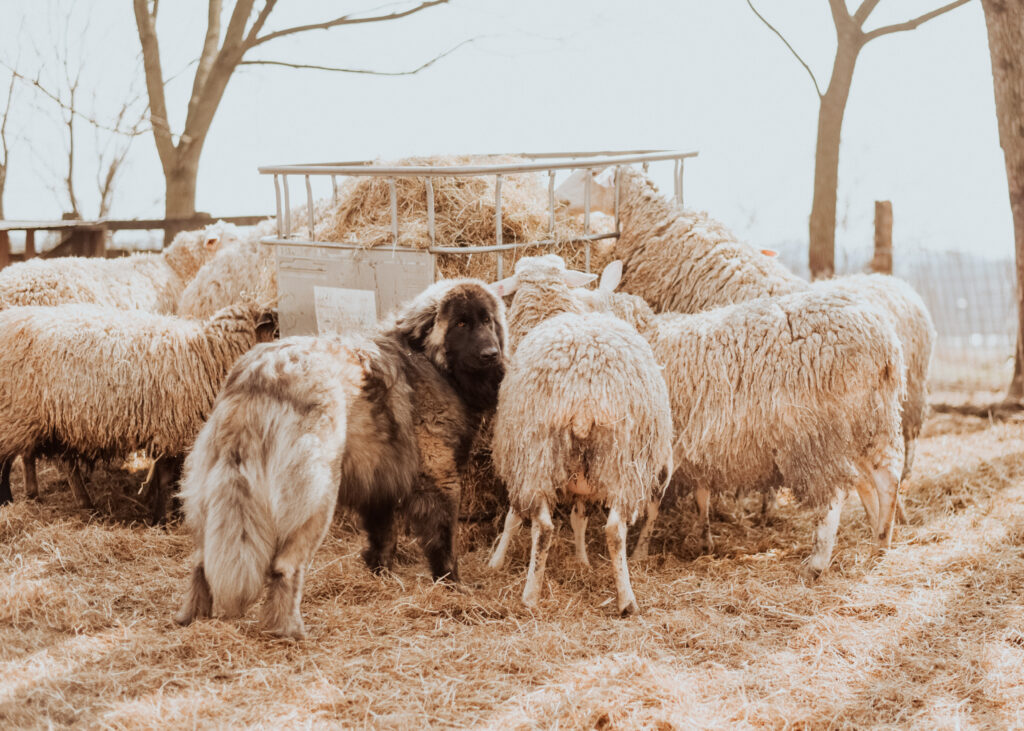
A Livestock Guardian dog breeder (LGD breeder) is an invaluable asset to farmers and ranchers. We breed, train and sell Livestock guardian dog puppies for herd and flock protection. Our LGD puppies provide vital protection to their livestock from predators.
A reputable Livestock Guardian Dog Breeder is the key to finding reliable, working LGD puppies.
What is a Livestock Guardian dog?
Livestock guardian dogs are loyal and dedicated canines, specifically bred and trained for the purpose of safeguarding the farm animals in their care. Discover Livestock Guardian Dog Breeds Available in the United States here. Livestock guardian dogs need an ethical livestock guardian dog breeder to ensure their working longevity. In this blog post, we will discuss what it takes to be a reputable livestock guardian dog breeder. And we will explore the crucial role they play in providing well-bred LGDs that excel in their protective duties.
The Role of a Livestock Guardian Dog Breeder
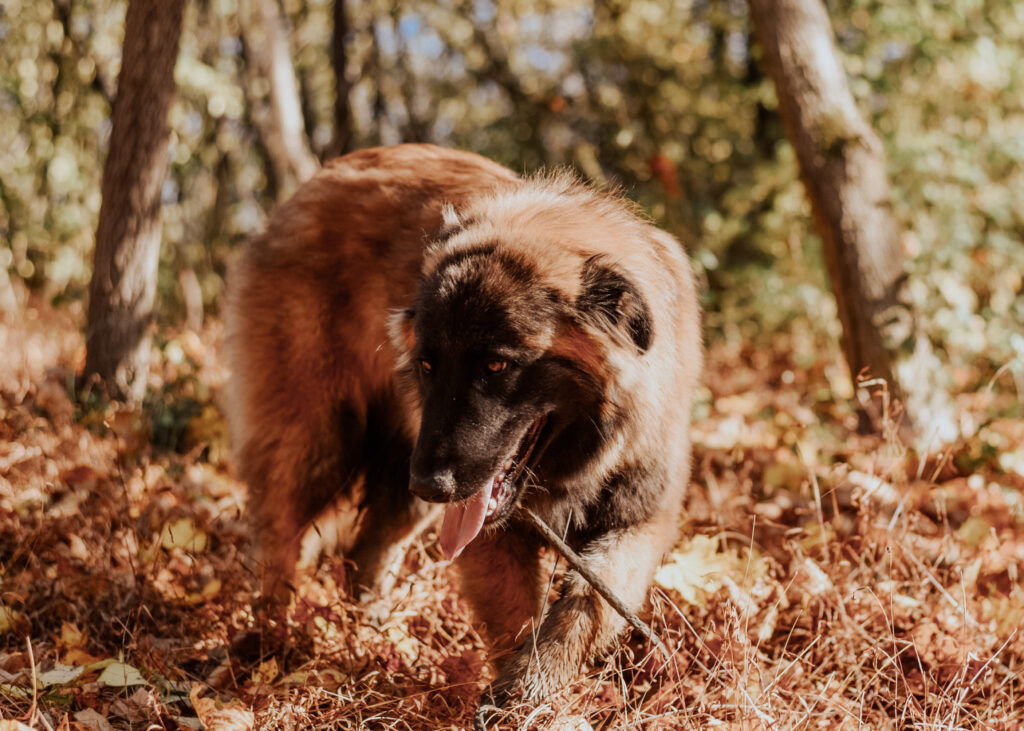
Responsible livestock guardian dog breeders serve as the linchpin in ensuring the quality and effectiveness of LGDs. They meticulously select breeding pairs based on specific traits that are essential for successful livestock protection. Experienced breeders possess a deep understanding of their chosen LGD breed, and how this breed protects their flocks. They strive to produce dogs that are not only physically capable but also possess the temperament and intelligence required to excel in their role.
Working instincts, healthy structure, and sound temperaments form the backbone of successful LGD breeding programs.
Health considerations are of paramount importance to these breeders. By conducting comprehensive genetic testing and screening of their breeding stock, they mitigate the risk of passing on hereditary diseases to future generations of LGDs.
This proactive approach helps ensure the long-term health and well-being of Livestock guardian dogs.
LGD Puppies need Exposure to Livestock and Life Experiences
Recognizing the importance of early socialization, reputable breeders expose their puppies to both livestock and humans from a young age.
This exposure facilitates the development of strong bonds between the dogs and the animals they are meant to protect.
Furthermore, these breeders provide early obedience training and expose the dogs to real-life farm situations. They empower puppies with the necessary skills and confidence to face the challenges they may encounter in their protective duties.
How to find a Reputable Livestock Guardian Dog Breeder
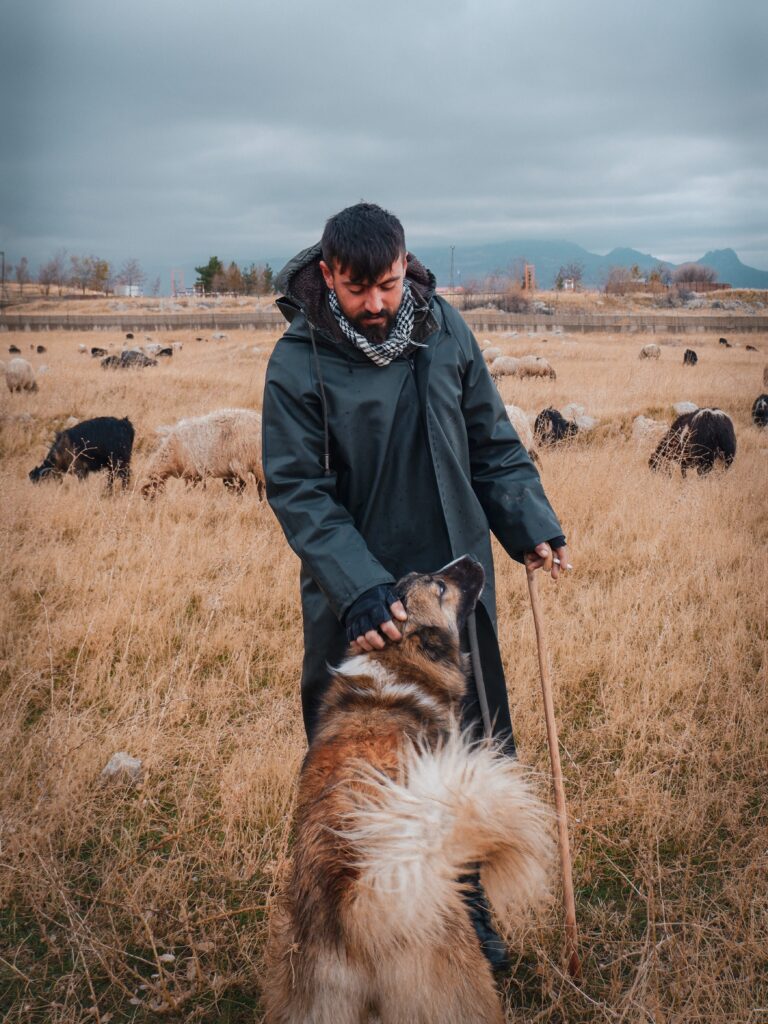
Finding a trustworthy Livestock Guardian dog breeder is crucial to ensuring the working ability of your new LGD puppy. Ethical breeders focus on the temperament, health, and well-being of their dogs. They prioritize matching working livestock guardian dog puppies with potential puppy families based on temperament assessments.
Reputable LGD breeders are not mixing and matching LGD breeds at random.
They are deeply committed to their specific breed and strive to produce mentally sound and physically healthy dogs. They are willing to answer your questions, discuss your lifestyle, and provide guidance on the costs associated with owning a large breed dog. Your environment, the type of stock you have, and your property dimensions are important. These details will help a livestock guardian dog breeder choose the right puppy for you.
How Much does a Livestock Guardian Dog Puppy Cost?
Livestock Guardian Dog puppies are typically priced at a minimum of $1,000 USD for purebred and working LGD breeds. However, the cost can vary significantly, ranging from $500 to $5,000 depending on factors such as genetics, breed, and working instincts. The higher prices are justified by a dogs working ability and the value they bring in protecting valuable livestock.
Recommendations for an LGD Breeder
When searching for a trustworthy LGD breeder, it’s essential to conduct thorough research. Seek recommendations from experienced dog owners. Consult breed clubs, and other farmers. Ask for recommendations and proof that the breeder is experienced.
A reputable breeder will provide health clearances for the parent dogs, offer socialization opportunities for the puppies, and be available for ongoing support and guidance throughout the dog’s life.
Remember, an LGD puppy will be guarding the life on your farm. You cannot afford to spend time training a poorly bred puppy that has lost its working instincts. These puppies are dangerous to stock and often humans. You will protect your future, by doing your research ahead of time.
Identifying a Good Livestock Guardian Dog Breeder
Here’s a quick overview of the differences between a good and bad Livestock Guardian dog breeder:
| Quality | Good LGD Breeder | Bad LGD Breeder |
|---|---|---|
| History | Has studied the function and purpose of the breed. Receives native breeder mentoring. Researches breed lines. | Does not understand the history, function of purpose of the breed. Matches whatever pair of dogs they can find, or import. |
| Breeding Purpose | Breeds puppies to preserve and maintain the indigenous, working breeds. Does not breed for fad or fast profit. | Decides it’s cool to promote and exploit a “new” dog breed. Breeds indiscriminately for personal gain. |
| Ethically Cares for Dogs | Understands the LGDs’ original function and provides their dogs a healthy and happy quality life. Allows them to dig, exercise and be human companions, while protecting their stock. | Keeps dogs in kennels or hands off herd conditions. Does not recognize that LGDs need human companionship along with proper diet. |
| Allows Dogs to Mature | Understands that LGDs are large breeds and need adequate time to mature. Does not exploit dogs by breeding indiscriminately before 18 months of age. Does not make excuses for purposefully breeding underage dogs. | Breeds whatever male and female LGD they have onsite. Breeds males before 12 months of age and females before they are mature. Exploits the breed by not following native breed club guidelines. |
| Health Testing | Follows basic breed health testing at the minimum. Does not depend on DNA health testing alone. | Ignores health testing because dogs “look healthy”. Claims that incomplete health testing is sufficient. |
| Temperament | Understands and upholds their LGD breed Temperament. Sources dogs that are indigenous and display a safe Character. Does not tolerate human aggressive lines. | Breeds confirmation at the expense of personality. Excuses aggression and faulty temperaments as being a “normal”. Promotes or engages in bite work training and prospects. |
| Screens Puppy Buyers | Understands that puppies need responsible and trustworthy homes. Does not place puppies indiscriminately or as mixed breeding prospects. | Does not advocate for their pups. Accepts hands off herd situations, kennel prospects, and less then ideal quality of life owners. Sells with breeding rights to any situation. |
| Cost of Puppies | Often very expensive. Offers support and health guarantees. Keeps puppies until they have found good homes and takes them back if it does not work out. Does not contribute to shelter populations. | May be less expensive. Does not offer health guarantees. Sells for profit or exploitation. Will refuse to take puppies back, and these puppies are at risk of needing rehabilitation or worse. |
The Benefits of Working with a Responsible LGD Breeder
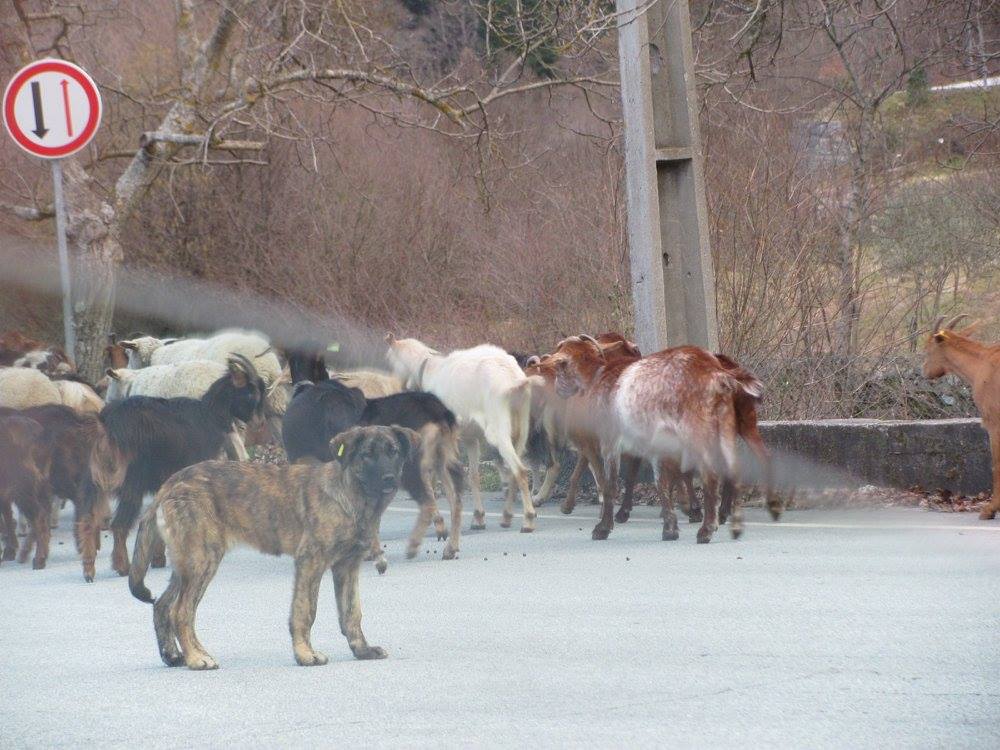
Collaborating with responsible LGD breeders offers numerous benefits for farmers and livestock owners seeking reliable guardians for their animals. These breeders care about your future success! They want to give their puppies the best chance at becoming formidable Livestock protectors.
They place a strong emphasis on producing well-suited LGDs that possess the necessary traits for effective livestock protection. This is all very much in your favor as a potential LGD puppy buyer.
One significant advantage of working with a good LGD breeder is the increased likelihood of your new LGD puppy excelling in their protective duties. I have worked with LGD puppies from many different establishments. Believe me when I say that working instincts, and early life experiences, made all the difference in my dogs working abilities.
By careful selection, these breeders consistently produce puppies that possess the desired traits for successful livestock guarding. Whether it’s a specific temperament, size, or working style, responsible breeders focus on refining these attributes to ensure the best possible match for their clients’ livestock and farm conditions.
LGD Breeder Support and Guidance
Another advantage of working with responsible breeders is the support and guidance they provide throughout the lifetime of the LGD. Their experience and expertise in LGD breeding make them a valuable resource for selecting the most suitable dog for your specific needs.
They possess an in-depth understanding of the various factors involved in successful LGD placement. By leveraging their knowledge, breeders can provide valuable advice and guidance on training, integration with existing livestock, and long-term care, ensuring the dog’s success in its role as a guardian.
Ethical Considerations in LGD Breeding
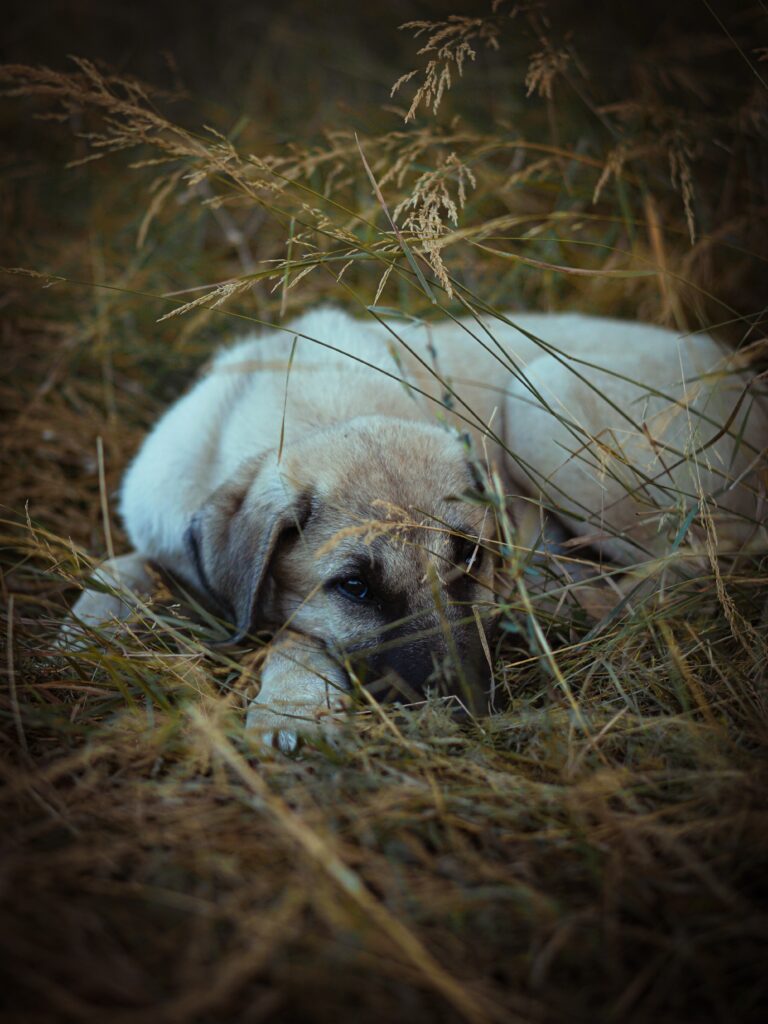
Responsible LGD breeders prioritize ethical practices to safeguard the welfare of the dogs and contribute to the long-term success of the breed. Poor breeding practices are strictly avoided as it can lead to numerous health and behavioral problems. Responsible breeders carefully manage their breeding program, ensuring that their dogs are not excessively bred and that each breeding is thoughtfully planned to maintain the overall quality of the LGD population.
Furthermore, responsible breeders actively promote responsible ownership and advocate for long-term commitments to the LGDs they produce. They will not sell you 2 LGD puppies when you cannot manage one.
They educate potential owners about the responsibilities and challenges associated with owning an LGD, emphasizing the importance of providing proper management throughout the dog’s life. This proactive approach helps reduce instances of misbehavior, neglect or abandonment.
Additionally, responsible breeders encourage spaying/neutering for dogs that are not intended for breeding purposes. By promoting this practice, breeders help control the population of LGDs and prevent the proliferation of unplanned litters. Spaying/neutering also offers various health benefits for the individual dog, such as reducing the risk of certain diseases.
Conclusion
A responsible livestock guardian dog breeder plays a pivotal role in ensuring the availability of well-bred and reliable LGDs. Through their selective breeding practices, prioritization of health considerations, and commitment to empowering working instincts, they produce dogs that excel in their protective duties.
By conducting thorough research and working with reputable breeders, farmers and livestock owners can increase their chances of obtaining LGD puppies that possess the necessary traits for effective livestock protection.
Let us recognize and support these dedicated breeders who contribute to the success and well-being of both livestock and the LGDs that watch over them. Together, we can uphold the importance of responsible LGD breeding and secure a brighter future for livestock protection.
Related Posts You May Like:
Are Estrela Mountain Dog Good with Kids?
What is a Dog Breed? And Why Does it Matter?
Short Hair Estrela Mountain Dog vs Long Hair- What’s the Difference?
Comments +